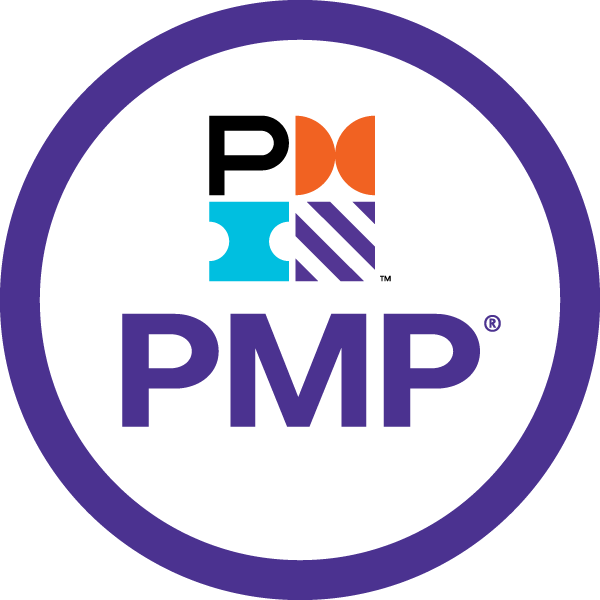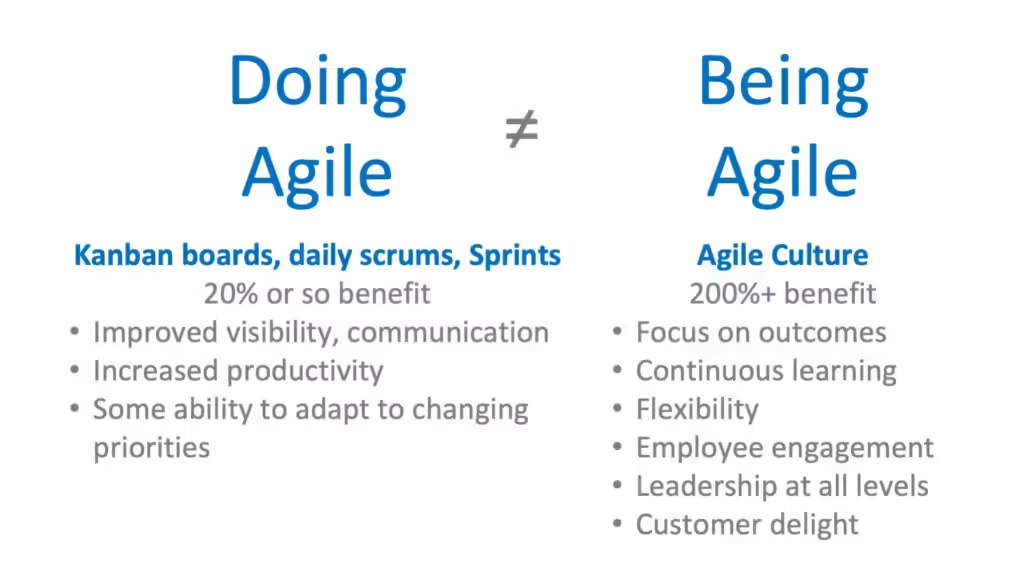
Why is corporate obsessed with PMP certification despite it is a gimmick like MBA that commercialized self-made titles profiteering every step of the student from registration membership products online modules classes exam fee renewal?
While some might perceive the PMP certification and MBA programs as commercialized and profit-driven, there are several reasons why corporate environments highly value PMP certification:
- Standardization and Best Practices: The PMP certification, governed by the Project Management Institute (PMI), ensures that certified project managers have a thorough understanding of standardized project management practices. These standards are encapsulated in the PMBOK (Project Management Body of Knowledge) Guide, which is recognized globally as a comprehensive set of best practices.
Why It Matters:
- Consistency Across Projects: By adhering to these standardized practices, organizations can ensure that projects are managed in a consistent manner, regardless of who is leading them. This consistency is crucial for maintaining quality and efficiency across multiple projects.
- Common Language: The PMBOK Guide provides a common language for project managers and teams. This common terminology and understanding reduces miscommunications and misunderstandings, which are common pitfalls in project management.
- Framework for Success: Standardized best practices provide a structured framework that project managers can follow, helping them to plan, execute, and close projects successfully. This framework includes methodologies for risk management, resource allocation, stakeholder communication, and more.
- Continuous Improvement: The PMBOK Guide is regularly updated to reflect the latest trends and innovations in project management. This ensures that PMP-certified professionals are up-to-date with current best practices and can apply the most effective techniques in their projects.
Benefits to Organizations:
- Quality Assurance: Adhering to standardized practices helps maintain high-quality outcomes across projects.
- Efficiency: Streamlined processes and methodologies lead to more efficient project execution, saving time and resources.
- Scalability: Standardized practices make it easier to scale project management efforts across larger organizations or multiple geographic locations.
In summary, the standardization and best practices ensured by PMP certification help organizations achieve consistent, high-quality project outcomes, making the investment in PMP-certified project managers worthwhile.
2. Proven Knowledge and Skills: The PMP certification process is rigorous, requiring candidates to demonstrate substantial knowledge and skills in project management. To qualify for the exam, candidates must meet specific educational and professional experience requirements, and they must pass a challenging exam that tests their understanding of project management principles and practices.
Why It Matters:
- Comprehensive Assessment: The PMP exam covers a broad range of project management topics, including planning, executing, monitoring, controlling, and closing projects. It assesses a candidate’s ability to apply knowledge to real-world scenarios, ensuring they can handle diverse project challenges.
- Validation of Expertise: Successfully earning the PMP certification validates that the individual has both theoretical knowledge and practical experience in project management. This is reassuring to employers who seek competent project managers.
- Commitment to Excellence: Preparing for the PMP exam requires significant time and effort, demonstrating a candidate’s dedication to their professional development and their commitment to achieving a high standard of project management proficiency.
Benefits to Organizations:
- Confidence in Hiring: Employers can trust that PMP-certified candidates have been thoroughly vetted and possess the skills necessary to manage projects effectively. This reduces the risk associated with hiring and training new project managers.
- Reduced Training Needs: PMP-certified professionals are already well-versed in project management best practices, which means they require less initial training and can contribute to projects more quickly.
- Enhanced Project Outcomes: With proven knowledge and skills, PMP-certified project managers are more likely to deliver successful projects that meet their goals and objectives.
In summary, the rigorous process of obtaining PMP certification ensures that certified professionals possess a validated, comprehensive understanding of project management, making them highly valuable to employers and capable of managing complex projects effectively.
3. Improved Project Success Rates: Organizations with PMP-certified project managers often experience higher success rates in their projects. This success can be attributed to the standardized methodologies and best practices that PMP-certified professionals bring to their roles.
Why It Matters:
- Structured Approach: PMP-certified project managers follow a structured approach to project management, which includes defined processes for initiating, planning, executing, monitoring, and closing projects. This structured approach reduces the likelihood of project failures.
- Risk Management: One key aspect of the PMP curriculum is risk management. Certified project managers are trained to identify, assess, and mitigate risks effectively, ensuring that potential issues are addressed before they can impact the project negatively.
- Stakeholder Management: PMP-certified professionals are skilled in stakeholder management, ensuring that all project stakeholders are engaged, informed, and their needs are met. This leads to higher satisfaction and fewer conflicts during the project lifecycle.
- Quality Management: Emphasis on quality management processes ensures that the deliverables meet the required standards and specifications, reducing the need for rework and enhancing client satisfaction.
Benefits to Organizations:
- Higher ROI: Projects managed by PMP-certified professionals are more likely to be completed on time and within budget, providing a higher return on investment.
- Consistency in Delivery: The structured methodologies used by PMP-certified project managers lead to consistent project outcomes, making it easier for organizations to predict and achieve their strategic goals.
- Reduced Project Failures: Effective risk and quality management practices lead to fewer project failures and less wastage of resources, improving the overall efficiency of the organization.
In summary, PMP certification contributes to improved project success rates by equipping project managers with the skills and knowledge needed to manage projects systematically, mitigate risks, and ensure quality, ultimately benefiting the organization’s bottom line.
4. Global Recognition: The PMP certification is recognized and respected worldwide. This global recognition ensures that PMP-certified project managers are seen as highly qualified professionals capable of managing projects in any industry or geographic location.
Why It Matters:
- Universal Standards: The PMP certification is based on the PMBOK Guide, which provides a universally accepted set of project management standards and practices. This universal framework ensures that PMP-certified professionals can work effectively in diverse environments.
- Cross-Industry Applicability: The skills and knowledge gained through PMP certification are applicable across various industries, including IT, construction, healthcare, finance, and more. This versatility enhances the value of PMP certification in the job market.
- Mobility: For professionals, having a globally recognized certification like the PMP facilitates career mobility. PMP-certified project managers can find opportunities in different countries and industries, increasing their career prospects and flexibility.
- Credibility: The global recognition of the PMP certification adds credibility to a project manager’s qualifications. Employers and clients are more likely to trust and respect the capabilities of a PMP-certified professional.
Benefits to Organizations:
- Consistent Standards: Employing PMP-certified project managers ensures that the organization adheres to consistent project management standards, regardless of the location or industry.
- Competitive Advantage: Organizations with PMP-certified professionals can market their project management capabilities more effectively, gaining a competitive edge in global markets.
- Client Confidence: Clients and stakeholders often feel more confident working with organizations that employ PMP-certified project managers, knowing that their projects are in capable hands.
In summary, the global recognition of the PMP certification ensures that certified professionals are well-regarded and capable of managing projects across various industries and locations, providing significant advantages for both individuals and organizations.
5. Career Advancement: For individuals, obtaining PMP certification can significantly enhance career prospects. The certification demonstrates a high level of expertise and commitment to the profession, making PMP-certified project managers more attractive to employers.
Why It Matters:
- Higher Earning Potential: PMP-certified project managers often command higher salaries compared to their non-certified counterparts. The certification is recognized as a mark of excellence, which employers are willing to reward financially.
- Career Opportunities: PMP certification opens up a wide range of job opportunities. Many organizations specifically require or prefer PMP-certified candidates for project management roles, giving certified professionals a competitive edge in the job market.
- Professional Growth: Preparing for the PMP exam requires a deep understanding of project management principles and practices. This rigorous preparation process enhances a professional’s knowledge and skills, contributing to their overall professional growth.
- Networking Opportunities: PMI offers various resources, including local chapters, online communities, and global events, where PMP-certified professionals can connect with peers, mentors, and industry leaders. These networking opportunities can lead to new career prospects and collaborations.
Benefits to Organizations:
- Skilled Workforce: By employing PMP-certified project managers, organizations benefit from a highly skilled and knowledgeable workforce capable of handling complex projects.
- Retention: Investing in employee development by supporting PMP certification can improve job satisfaction and retention rates, as employees feel valued and see clear paths for career advancement.
- Leadership Development: PMP certification prepares project managers for leadership roles, enabling organizations to build a pipeline of capable leaders who can drive strategic initiatives.
In summary, PMP certification can lead to significant career advancement opportunities for individuals, including higher salaries, more job prospects, and professional growth, while organizations benefit from a more skilled and motivated workforce.
6. Commitment to Professional Development: PMP certification requires professionals to maintain their credentials through continuous learning and professional development. This ongoing commitment ensures that PMP-certified project managers remain current with the latest trends, tools, and best practices in project management.
Why It Matters:
- Continuous Learning: To maintain PMP certification, professionals must earn Professional Development Units (PDUs). This requirement encourages continuous learning and skill enhancement, keeping project managers up-to-date with evolving methodologies and technologies.
- Adaptability: The need for continuous professional development ensures that PMP-certified project managers can adapt to changes in the project management landscape, such as new software tools, management techniques, or industry regulations.
- Lifelong Growth: The emphasis on ongoing education fosters a mindset of lifelong learning and professional growth. This commitment to development is crucial for staying competitive in the rapidly changing business environment.
Benefits to Organizations:
- Up-to-Date Skills: Organizations benefit from having project managers who are always improving their skills and knowledge, which can lead to more innovative and efficient project management practices.
- Improved Project Outcomes: Continuous professional development helps project managers apply the latest and most effective strategies to their projects, leading to better outcomes.
- Organizational Agility: Having a team of PMP-certified project managers who are committed to professional development enhances the organization’s ability to respond to new challenges and opportunities swiftly and effectively.
In summary, the requirement for continuous professional development ensures that PMP-certified project managers remain proficient and adaptable, benefiting both their own careers and the organizations they work for through enhanced skills and up-to-date knowledge.
7. Networking and Community: The PMP certification connects professionals to a vast network of peers through the Project Management Institute (PMI) and its local chapters. This community provides valuable opportunities for networking, mentorship, and sharing best practices.
Why It Matters:
- Professional Network: Being part of the PMI community gives PMP-certified professionals access to a global network of project management practitioners. This network can be a valuable resource for advice, support, and collaboration on projects.
- Learning Opportunities: PMI chapters and online forums regularly host events, webinars, and workshops. These events offer opportunities to learn from industry experts, stay updated on the latest trends, and gain insights into different project management challenges and solutions.
- Mentorship: The PMI community includes experienced project managers who can provide mentorship and guidance to less experienced members. This mentorship can help project managers navigate their careers, solve complex project issues, and develop their skills.
- Knowledge Sharing: The community encourages the sharing of knowledge and experiences, which can lead to innovative solutions and improved project management practices. Members can learn from each other’s successes and failures, broadening their understanding of the field.
Benefits to Organizations:
- Access to Best Practices: Organizations employing PMP-certified project managers benefit from the shared knowledge and best practices within the PMI community. This collective wisdom can enhance the organization’s project management capabilities.
- Collaborative Projects: The network facilitates collaboration on large or complex projects that may require expertise from multiple regions or industries, leveraging the diverse skills within the PMI community.
- Enhanced Reputation: Having project managers who are active members of a respected professional community can enhance the organization’s reputation, making it more attractive to clients and potential employees.
In summary, the networking and community aspects of PMP certification provide professionals with valuable connections, learning opportunities, and support, while organizations benefit from the collective expertise and collaborative potential of the PMI community.
Why Corporate Is Obsessed with PMP Certification?
Corporate obsession with PMP certification stems from several compelling reasons:
- Standardization: PMP certification offers a standardized approach to project management, ensuring consistency and reliability across projects. This uniformity helps organizations streamline their processes and achieve predictable results.
- Proven Knowledge and Skills: The rigorous PMP certification process validates that project managers possess a comprehensive understanding of project management principles and practices. This ensures that certified professionals can effectively manage complex projects, reducing the risk of failure.
- Improved Project Success Rates: Organizations with PMP-certified project managers experience higher project success rates due to structured methodologies, effective risk management, and enhanced stakeholder engagement. This leads to better project outcomes and a higher return on investment.
- Global Recognition: PMP certification is respected worldwide, providing professionals with a universally recognized credential that enhances career mobility and credibility. Organizations benefit from employing project managers who can manage projects effectively in diverse environments.
- Career Advancement: PMP certification significantly enhances career prospects, offering higher earning potential, increased job opportunities, and professional growth. Organizations gain from having a motivated and skilled workforce capable of driving strategic initiatives.
- Commitment to Professional Development: The requirement for continuous learning ensures that PMP-certified project managers stay current with the latest trends and best practices. This adaptability benefits both individuals and organizations by fostering innovation and improving project management practices.
Networking and Community: The PMP certification connects professionals to a global network of peers through PMI. This community offers valuable opportunities for networking, mentorship, and knowledge sharing, enhancing both individual careers and organizational capabilities.
In conclusion, the corporate obsession with PMP certification is well-justified. The certification not only validates a project manager’s expertise but also contributes to improved project outcomes, global recognition, career advancement, ongoing professional development, and access to a valuable professional community. As a result, both individuals and organizations see substantial benefits from investing in PMP certification.



I’m really impressed along with your writing skills and also with the layout on your blog.
Is that this a paid theme or did you customize it your
self? Anyway keep up the excellent quality writing, it is rare to see
a great weblog like this one these days. Leonardo AI x Midjourney!